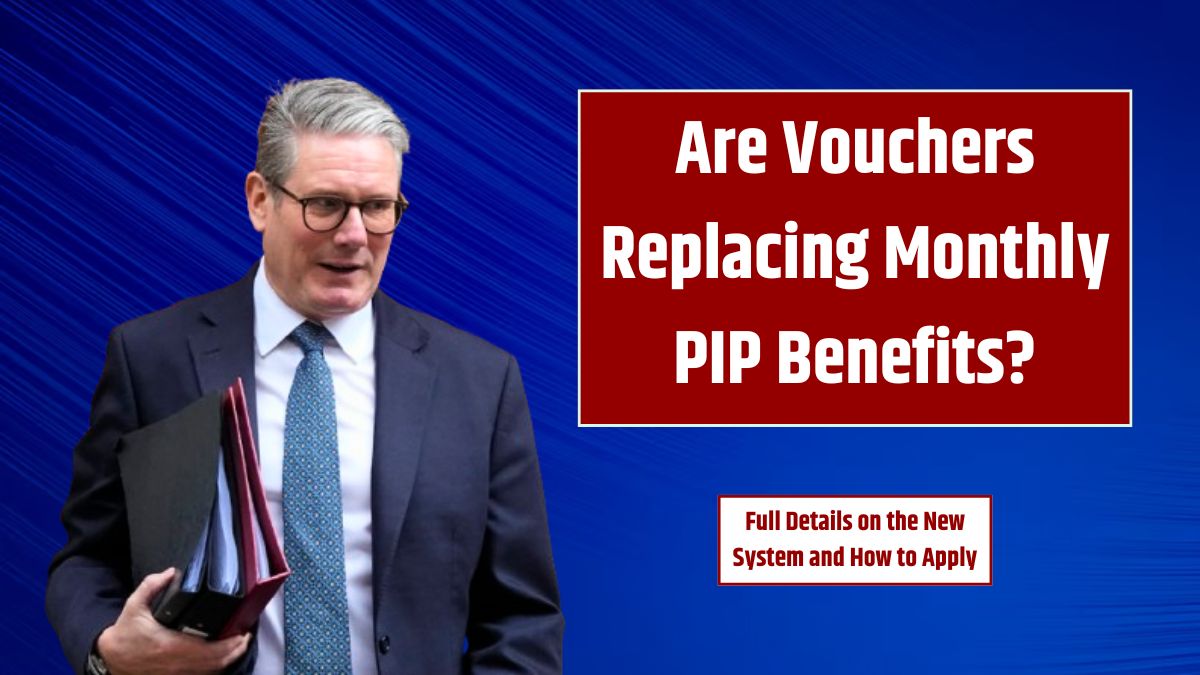The UK government is considering major changes to how Personal Independence Payment (PIP) benefits are delivered. Instead of monthly cash payments, new proposals could bring in alternatives like vouchers, one-off grants, and reimbursement schemes. These changes aim to provide more targeted support for disabled individuals, while keeping rising benefit costs under control.
This article dives into what’s being proposed, how it might affect current and future PIP recipients, and what the current application process looks like. We’ll also cover some of the most common questions about the potential system overhaul.
Vouchers
Under the proposed changes, the traditional monthly cash payments could be replaced with more specific forms of assistance. These include:
Vouchers: Prepaid vouchers would be used to pay for certain disability-related expenses, such as equipment, transportation, or services. While this ensures funds go toward essential needs, it could limit flexibility.
One-off Grants: These would be large, one-time payments for things like stairlifts, car modifications, or home renovations.
Reimbursements: This system would ask recipients to buy needed items first, then submit receipts to claim the money back. It could be tough for those with limited upfront cash.
Catalogue Schemes: People could order from an approved list of products offered by selected suppliers. While convenient, it might not suit everyone’s unique requirements.
Reason
Why is the government looking to make this change? The answer lies in cost and control. Disability support costs are climbing, with projections suggesting they’ll pass £18 billion by 2025. These new options are meant to ensure money goes directly toward disability-related needs, helping the system remain sustainable.
Supporters of the plan say it could offer better value for taxpayers and more relevant help for individuals. But opponents argue that removing cash payments limits personal freedom and could complicate an already difficult system.
Impact
These changes could bring big shifts for current and future PIP recipients. Here’s how each method might affect daily life:
Daily Expenses: Cash allows you to cover everything from food to travel. Vouchers and catalogues are more restricted, potentially leaving gaps in support.
Big Purchases: One-off grants could be helpful for major upgrades or equipment, though the application process might be time-consuming.
Reimbursement Risks: This system assumes you can afford to pay upfront, which is not the case for many.
Limited Choice: Catalogues may not offer the full range of items people need, especially if they have rare or complex conditions.
Feedback
Public feedback is a key part of this proposal. Disability rights groups, individuals, and carers are encouraged to share their views with the Department for Work and Pensions (DWP). The system is still under consultation, and decisions will likely be shaped by this input.
Advocacy groups are particularly concerned that any changes must not make support harder to access or reduce the dignity and independence of disabled individuals.
Applying
While changes are being considered, the current PIP application process is still in place. If you’re applying now, follow these steps:
1. Check Eligibility
You need to be between 16 and state pension age. Your condition must affect your daily life or mobility and be expected to last at least nine months.
2. Start Your Claim
Call 0800 917 2222 to begin or apply online (in trial areas only). You’ll answer a few questions to confirm your identity and situation.
3. Fill Out the Form
The DWP will send you a form titled “How Your Disability Affects You.” Fill it in with detailed information about how your condition impacts your day-to-day life.
4. Attend an Assessment
Most applicants will be asked to speak with a health professional. This can be over the phone or in person. They’ll ask about your difficulties and assess your functional needs.
5. Get a Decision
The DWP reviews everything and sends a letter with your award details. This tells you how much you’ll receive and for how long.
These steps are essential to ensure your support continues. If you’re already on PIP, any changes will likely come with notice and a transition period.
FAQs
What is replacing monthly PIP payments?
Possible alternatives include vouchers, grants, and reimbursements.
Will I lose money with the new system?
It’s unclear; the amount may stay the same but in a new format.
Can I still apply for PIP now?
Yes, the current system is still active and accepting new claims.
When will these changes happen?
They are still under consultation—no official start date yet.
Do I have to spend vouchers on specific items?
Yes, vouchers would be restricted to disability-related expenses.






